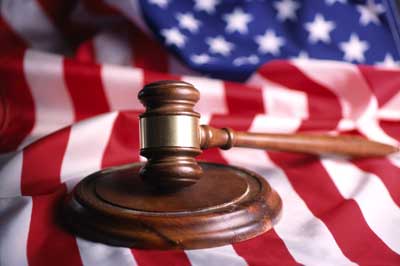
The District of Columbia has similar rules and the counterpart of the ABA Model Rule, in District of Columbia Rule 5.4(b) states "an individual nonlawyer who performs professional services which assist the organization in providing legal services to clients" may hold and ownership interest in such a law firm and the DC Rule 5.4(a) allows sharing of legal fees with such nonlawyers.
The neat result of the new ethics opinion is the ABA admits that under certain circumstances it is not unethical for lawyers to share legal fees with non-lawyers. That's a change, for sure.
The introductory paragraph of the ABA ethics opinion says:
Lawyers subject to the Model Rules may work with other lawyers or law firms practicing in jurisdictions with rules that permit sharing legal fees with nonlawyers. Where there is a single billing to a client in such situations, a lawyer subject to the Model Rules may divide a legal fee with a lawyer or law firm in the other jurisdiction, even if the other lawyer or law firm might eventually distribute some portion of the fee to a nonlawyer, provided that there is no interference with the lawyer's independent professional judgment.
To illustrate the situation, the opinion reads: A fee-sharing issue may arise when a lawyer undertakes the representation of a client in a matter that involves the services of another lawyer or law firm governed by different rules.
For example, a lawyer in a Model Rules jurisdiction may reasonably conclude that the client requires the assistance of a specific lawyer in a District of Columbia firm, in which a nonlawyer happens to hold an ownership interest, on a matter involving federal government contracts because that lawyer is uniquely qualified in such matters. With informed client consent, the two lawyers may work together on the matter. If the requirements of Model Rule 1.5(e) are met, a typical fee arrangement in such matters is for the client to receive a single billing for the work of both lawyers. In this situation, there may be a question whether the lawyer from the Model Rules jurisdiction, by participating in this common inter-firm fee arrangement, shares a legal fee in violation of Model Rule 5.4(a) because the District of Columbia firm's portion of the fee will presumably become part of that firm's overall revenues, revenues from which distributions may ultimately be made to the nonlawyer who holds an ownership interest
In such a situation, the ABA now makes clear, "the lawyer from the Model Rules jurisdiction does not violate Model Rule 5.4(a). That lawyer divided a legal fee only with "another lawyer," and a lawyer may divide legal fees with a lawyer admitted in another jurisdiction. Any concerns of the lawyer subject to the Model Rules regarding inter-firm division of legal fees should end at that point."

